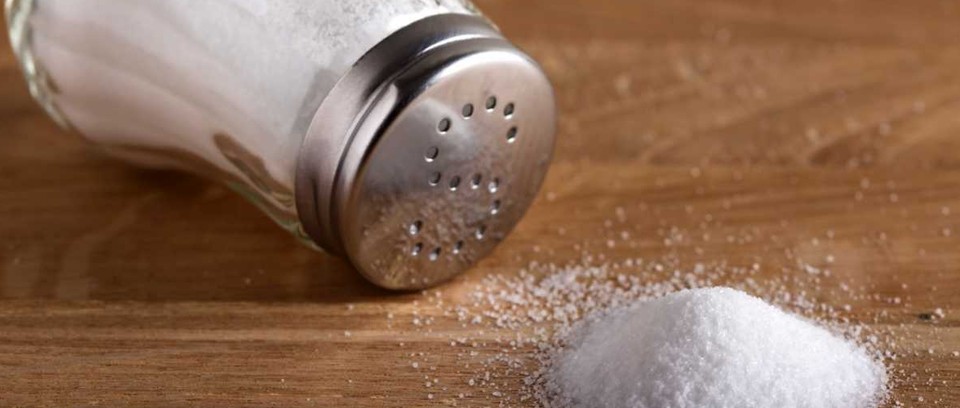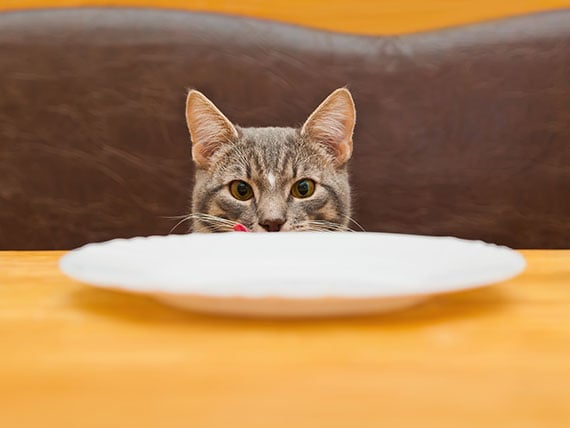Salt is one of the most commonly used ingredients while cooking, but it is toxic for cats. The consumption of salt can lead to vomiting and other health complications in cats. According to veterinarians, the use of salt in cat food should be avoided by cat owners. The common salt sources are salt dough, table salt, rock salt, seawater, etc. The cat owners should keep cats away from them.
Salt poisoning is very common in cats, and its symptoms are vomiting, fall in appetite, increased thirst, increased urination, lethargy, diarrhea, and incoordination. If the case goes severe, it can lead to tremors, coma, and death. The cat owners should immediately contact the veterinarian if they find any symptoms of salt poisoning in their cat.
Excess salt consumption by cats can be poisonous, and it can damage the cats’ overall health. If the cats keep consuming excessive salt, they can develop kidney issues and tremors in some cases. In severe cases, cats that consume excessive salt regularly can develop brain swelling. The cats can lose the ability to balance and suffer from diarrhea. The common food items found in households with high salt concentrations are rock salt, salt lamps, and salt shakers.
How much Sodium is Required by Cats?

Sodium is a mineral required for maintaining the proper functioning of the body. It is found in blood and the liquid which surrounds the cells of the body. Sodium helps to prevent the cells of the body from swelling. It also maintains the cells and prevents them from dehydrating. Salt is the most common source of protein, but it is not fit for cat consumption. Cats also require sodium in their diet, and the major sources of sodium for cats are meat, fish, eggs, and poultry. The packed dry cat foods also have sodium, about 0.2%, mentioned in their ingredients. This much sodium is necessary for the normal growth of the cats. If the intake of sodium is high by cats, it can lead to an increase in water consumption, and the excess sodium gets excreted through urine. Hence, the sodium concentration in packed cat foods is not harmful to the cats.
When Should Sodium Intake be Lowered?
The veterinarians recommend that the sodium content be cut off in a cat’s food when the cat is suffering from kidney, heart, or liver ailments because the decreased sodium intake will help decrease high blood pressure and lower the excessive accumulation of body fluids. Mostly, these diseases are found in older cats.
Safety Measures Required for Preventing Salt Poisoning in Cats

The cat owners should be attentive if they have a fish tank at their homes. The cats can drink the water from it, and that water is loaded with high salt. So, the cat owners should be alert. Rock salt is more dangerous for cats, and it can stick to the claws of cats. The cats are naturally clean animals, so they will lick their paw and eat the salt, which will lead to salt poisoning. If the cat owners see any symptom of salt poisoning in their cats, then they should immediately give them the first treatment like rehydrating them, balancing the sodium levels, and consulting the veterinarian.
Do Cats like salt
Cats are fond of salt, but this does not mean that they should be given salt freely. Cats can be given salt in their food, but its measurement should be correct because excessive salt can be dangerous for cats’ health. The packed cat foods come with appropriate sodium concentrations, and any additions to them can impact the cat. The sodium content in cats’ food should not be above 0.2%, and most of the packed dry cat foods come with this concentration.
Salt is used in most dishes for good taste. Like humans, cats also like to have salt. They also enjoy sweet, sour, and bitter things. Hence, salt is not an exception for the cats, but the owners should be careful while serving salt in the cats’ dishes. The amount of sodium in cats’ food should be right.
Can Salt Make Cats Sick
The straight answer is yes. Salt is the most common ingredient for human beings, but for cats, its excessive amount can be harmful. The packed cat foods already come with correct salt measurement, and any salt seasoning on them can lead to severe effects on the health of cats and can prove to be fatal.
Effects of Excessive Salt on Cats

Excess consumption of salt by cats can lead to adverse effects. The terrible effects that too much salt consumption can cause on cats’ health are listed below: –
Vomiting- Vomiting is the first symptom of salt poisoning in cats. Too much salt induces vomiting in cats. The cat should be given a good amount of water in this situation and limit the cat’s food intake. When the cat gets well, then the owner can give it the food it used to have.
Diarrhea- Diarrhea is a painful experience for cats. The urination and excretion increase and it can be the result of excessive sodium intake. The cat should be taken to a veterinarian.
Lethargy- If the cats consume an excess amount of sodium, then they can lose their energy. They can become lethargic, and their behavior changes due to weakness. An electrolyte imbalance occurs in the cat during this situation. The symptoms include loss of weight, aggression, fever, and an increase in urination.
Lack of Appetite- Besides lethargy and diarrhea, a cat can lose appetite due to excess sodium intake. The cat can also suffer from problems like dehydration, loss of balance, and seizures. All these problems are concerning, and a veterinarian should be consulted.
How to Fix Salt Poisoning
Even after great care, a cat can fall prey to salt poisoning. A cat owner should know some methods to fix salt poisoning. The first step is that the cat should be taken to a veterinarian immediately. The veterinarian will provide cat IV liquids, which will help to eliminate excess salt from the cat’s body. The veterinarian will perform other tests, too, monitor the cat’s electrolyte balance, and treat dehydration. A veterinarian will also monitor the brain activity of the cat, and all these things will fix salt poisoning in a cat.
